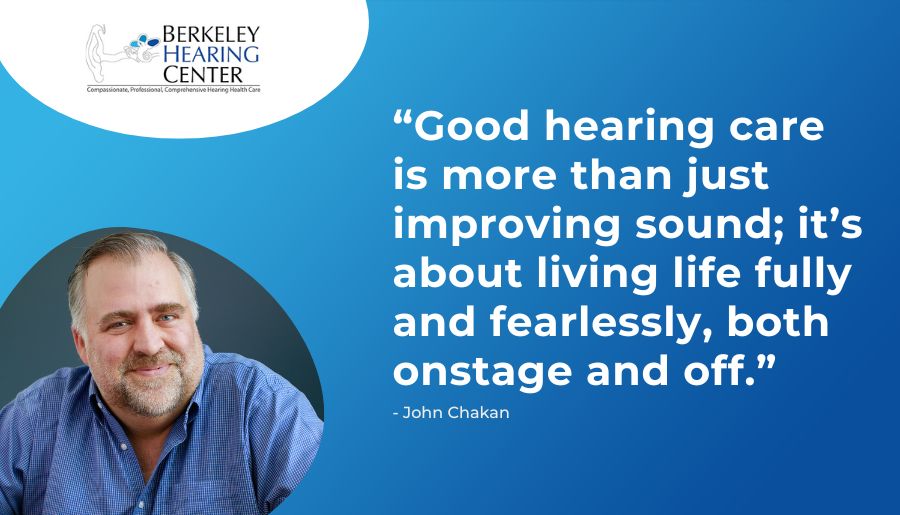2022-02-01
The Team at Berkeley Hearing Center
Ever since President Biden signed his Executive Order last July to allow manufacturers to sell hearing aids online and in retail stores, there has been a need to put the term “hearing aids” in two categories to distinguish between them and traditional hearing aids.
“Hearing aids” is now the term for hearing aids you can buy anywhere.
“Prescription hearing aids” is the new term for hearing aids that are prescribed, fitted, and programed by an audiologist or other hearing care expert.
The FDA released the proposed regulations for selling OTC hearing aids late last year, so we are already seeing certain manufacturers pump their marketing dollars into bringing them to the public eye.
With so much of a push to make OTC hearing aids appear enticing without highlighting their deficiencies, I will lay out the chief differences between the two to enlighten you.
Prescription Hearing Aids vs. Over-The-Counter Hearing Aids
There is a considerable difference between the two terms.
Prescription Hearing Aids
Only available from a hearing professional. Like pharmaceuticals, the term is a way to describe how they are obtained. Like prescription medications that are prescribed by a healthcare professional, prescription hearing aids are only obtainable from a hearing healthcare professional, preferably an audiologist.
A medical treatment. Professionally, we talk about “dispensing hearing aids” because we are dispensing medical treatment when we fit patients with hearing aids, just like with a prescription medication or medical procedure, since amplification is the only treatment for nerve hearing loss.
Programed to prescriptive algorithms. In the field of audiology, we also talk about “prescriptive fitting algorithms.” These algorithms, based on auditory research, help to determine the most appropriate amount of amplification (gain, volume, and output) across the speech spectrum for each individual’s hearing loss.
So when we are programming a patient’s hearing aids specifically for their hearing loss and how they subjectively perceive sound, we use the prescriptive algorithms to modify and verify all of the different parameters or settings.
OTC Hearing Aids – don’t require professional care or even a hearing test.
Degree of hearing loss. The biggest difference with OTC hearing aids is that they are only designed/intended to fit or address mild to moderate hearing loss, with the loss centered in the higher frequencies.
Compare that to prescription hearing aids that are specifically designed to address any degree (from slight/mild to profound), configuration, or etiology (type) of hearing loss more effectively.
A self-treating method. OTC is OTC; you’re treating yourself without professional guidance, healthcare, or support. The danger of self-treating is that your hearing loss might be caused by a buildup of earwax or a medical condition, which OTC hearing aids won’t fix.
Self-fitted. OTC, by definition, is generic and not customized for the individual. They are chosen and fitted by the user.
https://berkeleyhearing.com/wp-content/uploads/2022/01/Berkeley-CTA-banner.png
Professional Opinions Of OTC Hearing Aids
Prescription hearing aids have been developed based on decades of hearing and sound-processing research and tens of millions of dollars in research and development. They are backed by dedicated support staff across the industry.
OTC hearing aids are a consumer product. They are not endorsed by hearing professionals.
OTC hearing aids are made and sold primarily to make the manufacturer a profit.
If you have a severe hearing loss, OTC hearing aids won’t work for you.
If you have a mild to moderate hearing loss, both types can amplify sound, but only prescription hearing aids will be fine-tuned to meet your exact hearing needs.
Why Get Prescription Hearing Aids From An Audiologist?
Expert knowledge and experience – Audiologists are the healthcare professionals educated and trained specifically for the identification and treatment of hearing and balance disorders. Audiologists are required to obtain a doctorate to enter the field.
Fitted properly – Prescription hearing aids are physically fitted and programmed for only that individual, using acoustic measurements obtained in-situ, and verifying and ensuring the proper amount of amplification for each specific user.
Numerous styles and features to choose from – Prescription hearing aids are available in a variety of digitally printed, custom styles based on impressions or casts of the user’s ear(s).
The only long-term option – The purchase of prescription hearing aids typically includes several years of unlimited hearing healthcare.
This hearing healthcare provides the user with ongoing counseling and instruction on maximizing the benefits of properly fit amplification, ongoing maintenance and support, fine-tuning adjustments, annual audiological evaluations, and more.
Choosing Which Option Is Right For You
The only way to ensure you get the best hearing treatment for you is to consult a hearing professional. Take the first step and book an appointment for a hearing assessment and immediate results.
Feel free to call Berkeley Hearing Center to talk to a hearing care expert. Simply complete this form and we will call you back for a friendly no-obligation conversation and answer your questions.
The best hearing aid is the one that meets every possible hearing need, and we look forward to recommending yours.
The Team at Berkeley Hearing Center






